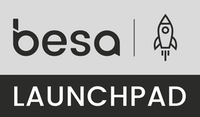Are your students choosing respect?

The 2024 anti-bullying week theme is ‘Choose Respect’. This is great advice and a foundation to build if we are to avoid bullying behaviour.
Our ‘How Are You?’ student voice survey has always featured questions about bullying, and it will be no surprise that verbal bullying is far more likely to be experienced by students than either physical or online bullying.
However, in the past year, we have added a few additional questions to provide insights about respect. Teachers told us they wanted to understand how respectful students felt towards each other and staff. Some of this stemmed from concerns about increasing levels of misogynistic and other disrespectful comments. However, schools also felt that a more subtle approach to questioning students via the survey would be preferable to blatant questions about misogyny.
The result was three questions asking students to the extent they agreed that there are:
1. Peer-to-peer respect in their school/college
2. Mutual respect between students and staff
3. Staff are considered good role models
Across settings, there can be considerable variation in results. However, boys report more positive peer-to-peer respect compared to girls. Staff are more likely to be viewed as good role models by girls, and post-16 students tend to have the most positive results.
A further addition to the question bank that touches on respect is the use of social media. While almost all students reported a positive relationship with social media, around half also told us that they had experienced something on social media that worried or frightened them. This ranged from inappropriate content to personal comments, but the recurring theme was a lack of respect for how the recipient would feel when receiving the content being posted.
Primary school children are also experiencing disrespectful online interactions, often using platforms that, in theory, they are too young to be using. We have been developing the primary school version of the ‘How Are You?’ survey and primary schools are very keen to include a range of questions, helping them gain insight into how well children understand what it means to be respectful towards each other and adults.
Of course, in PSHE/wellbeing lessons, the starting point is always highlighting the ground rules that will make the learning environment safe and respectful, and this should be returned to as often as required. However, there is no reason that this should not be the starting point for every lesson. After all, if students behave respectfully towards peers and staff, the knock-on effect is likely to improve teacher wellbeing!




